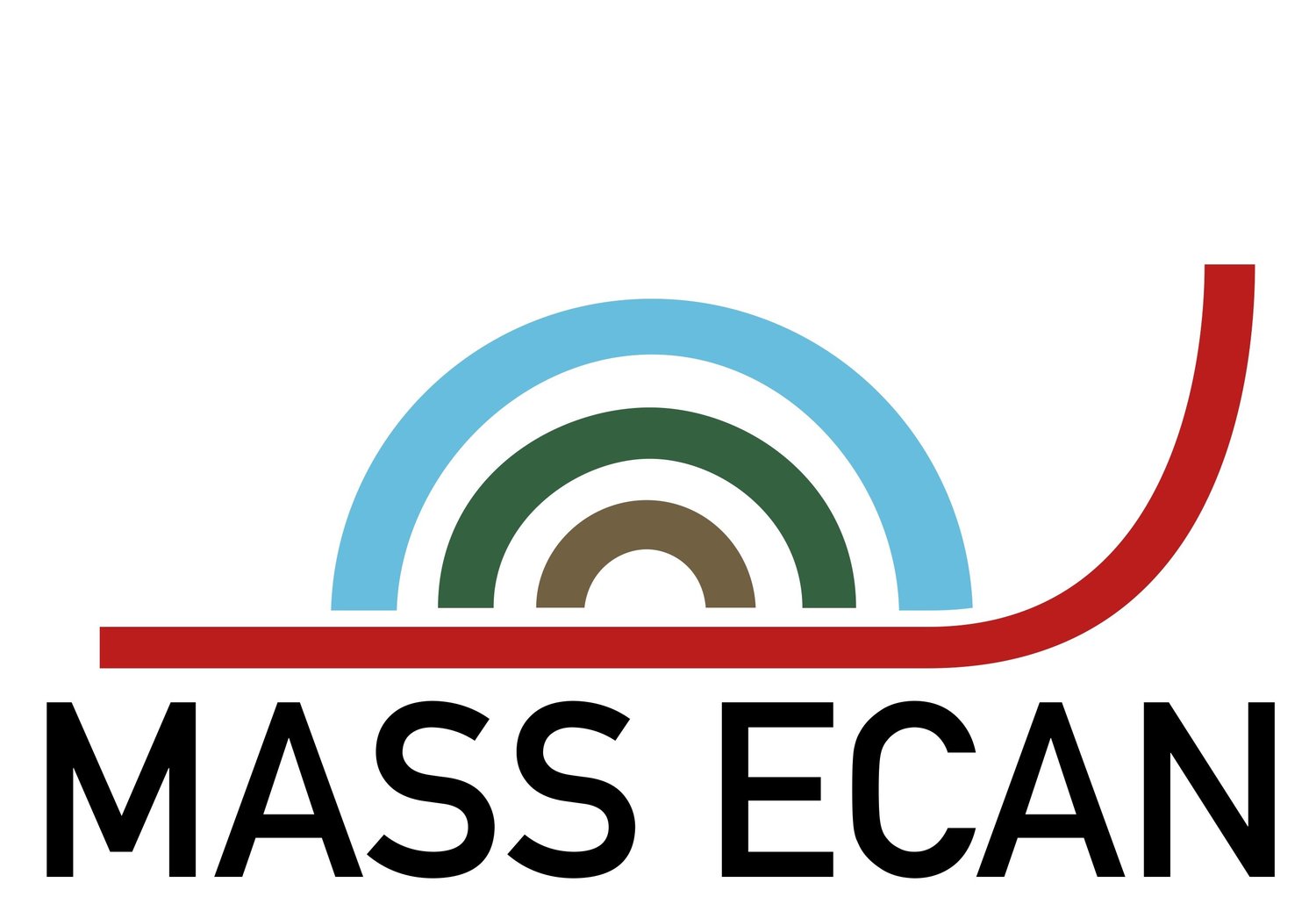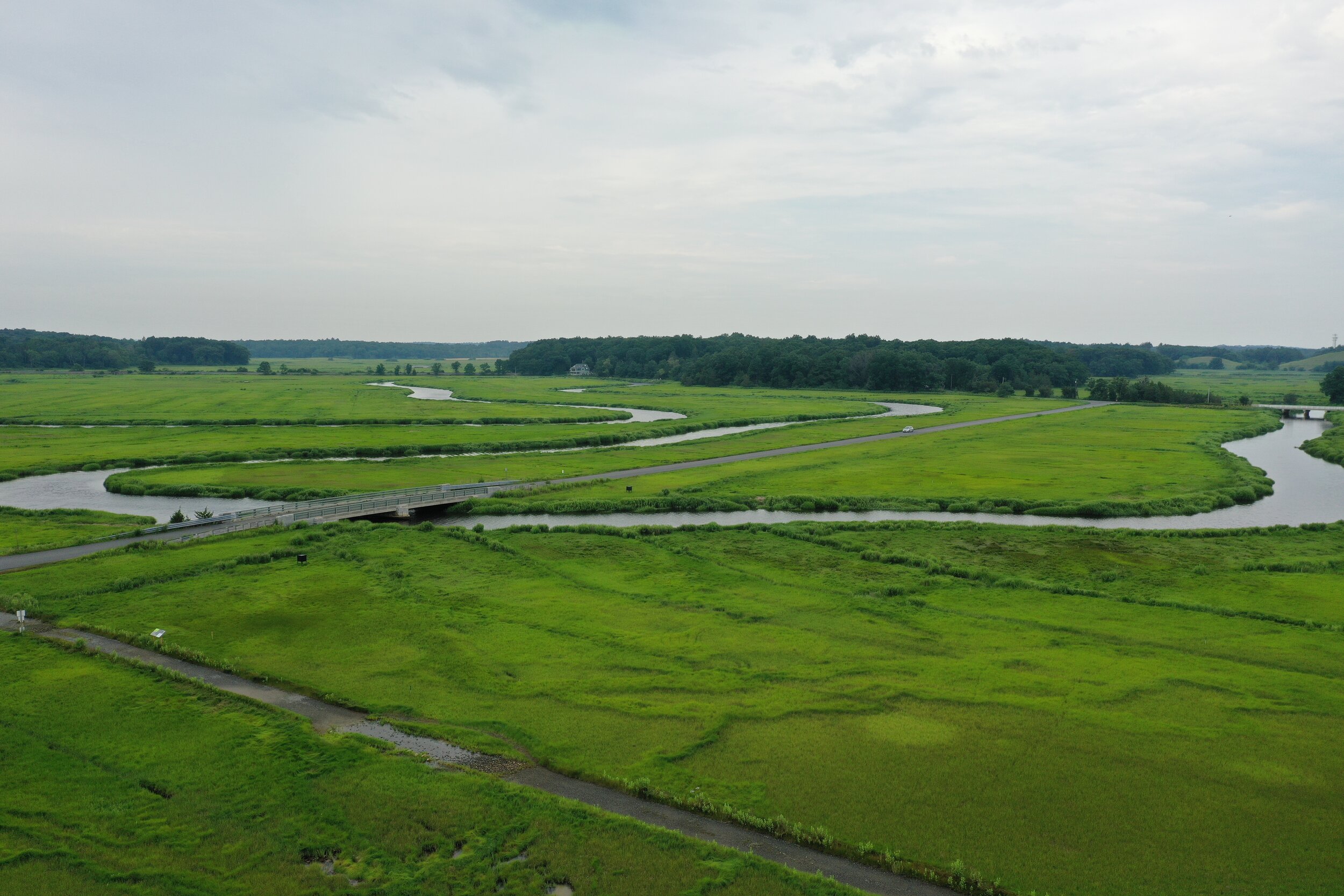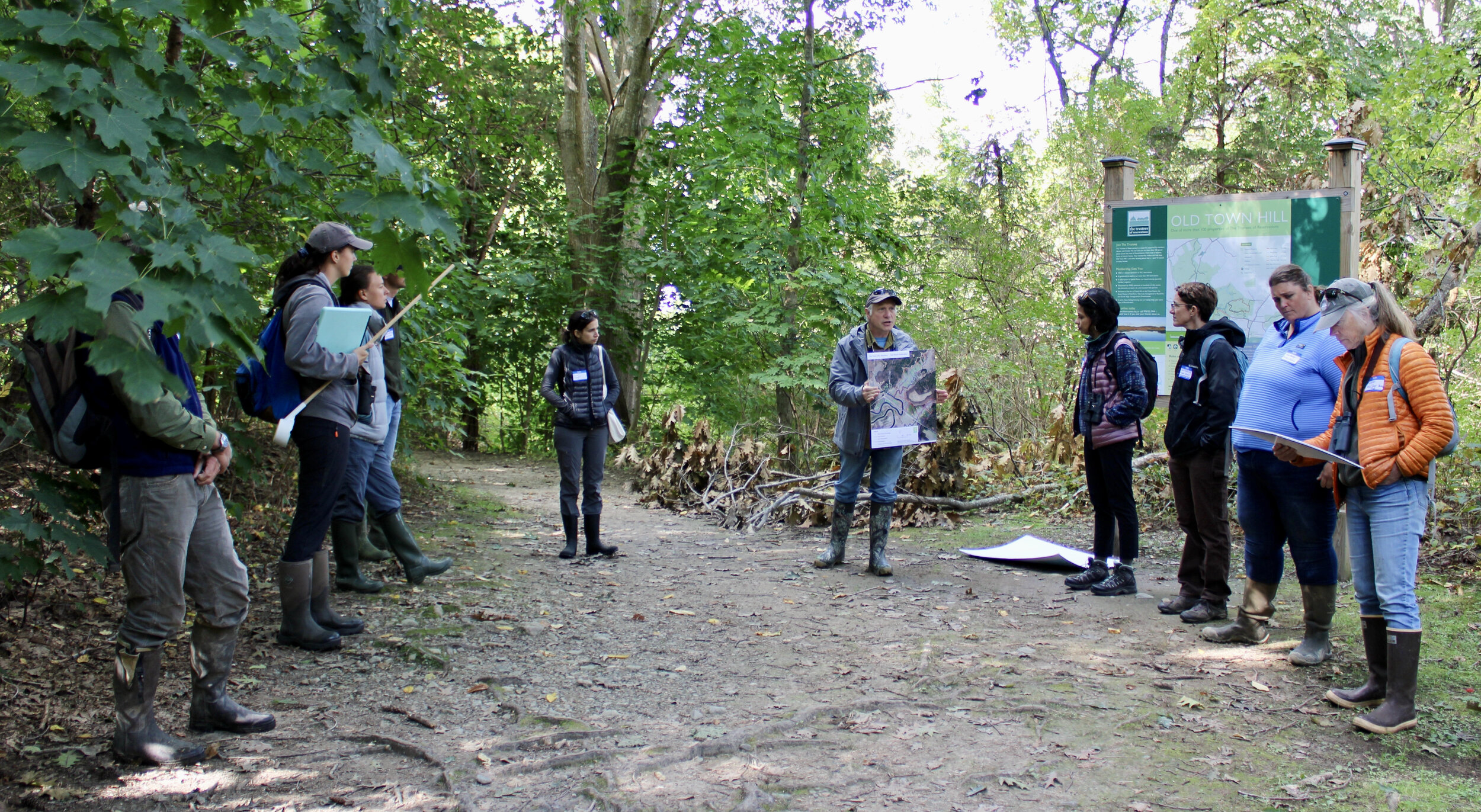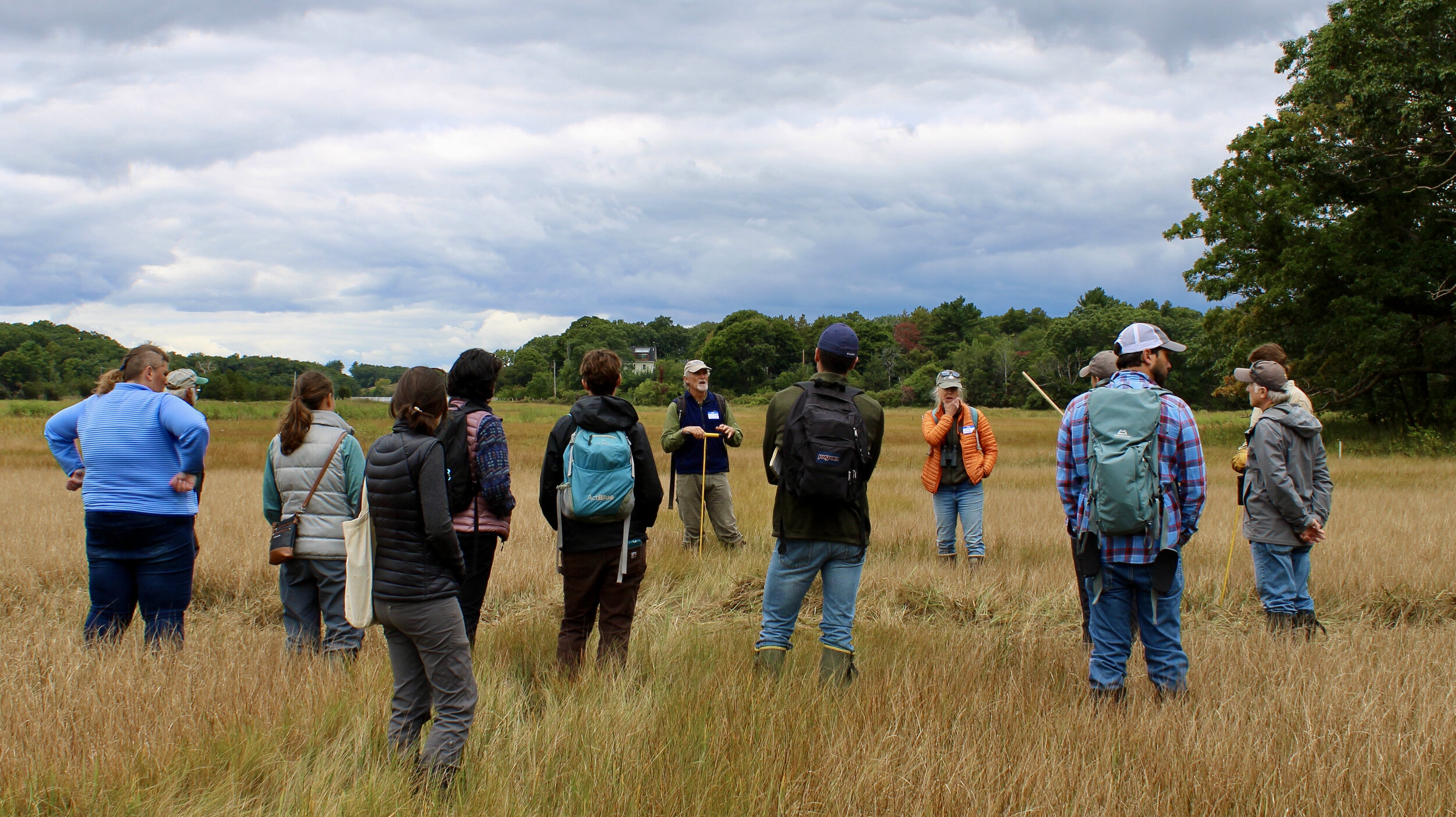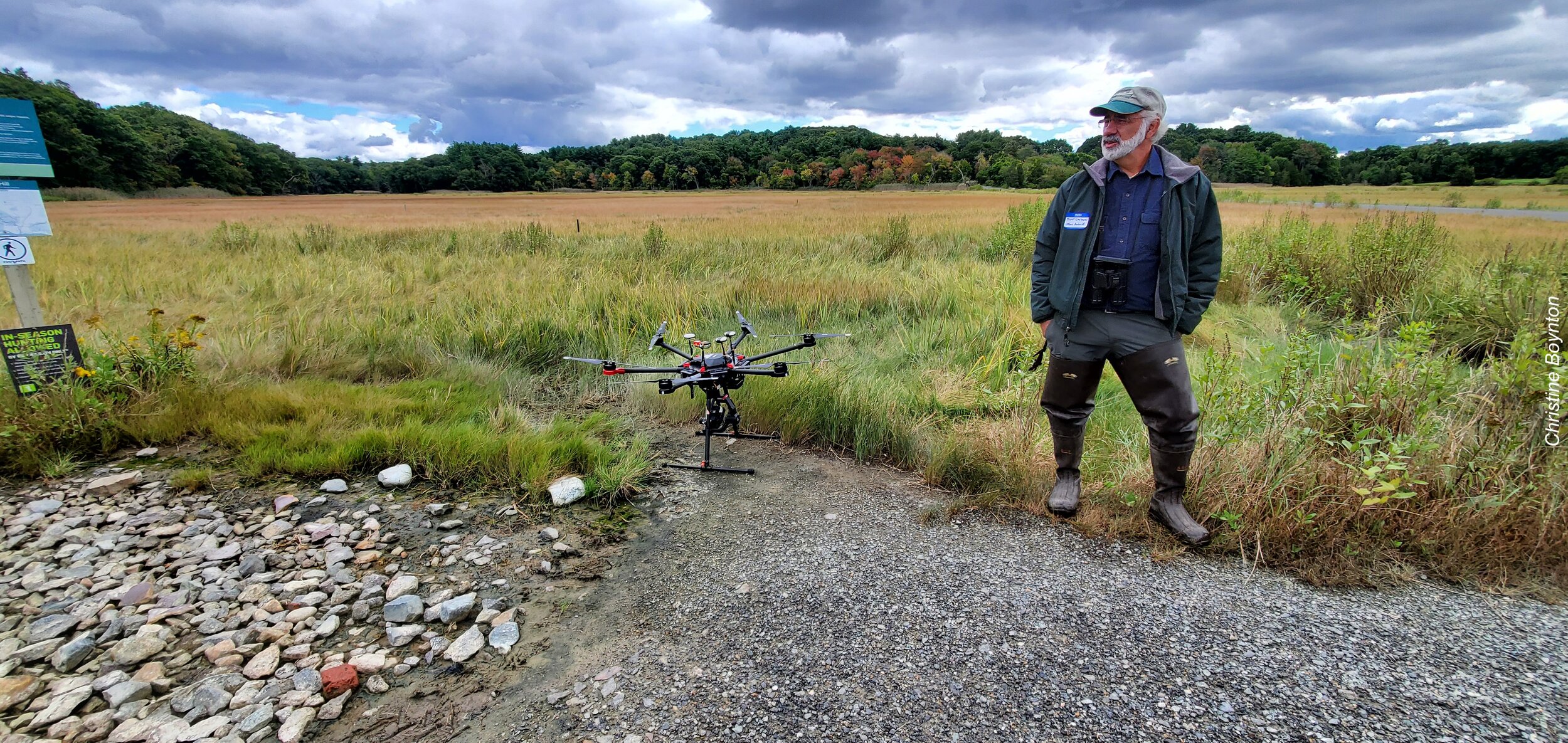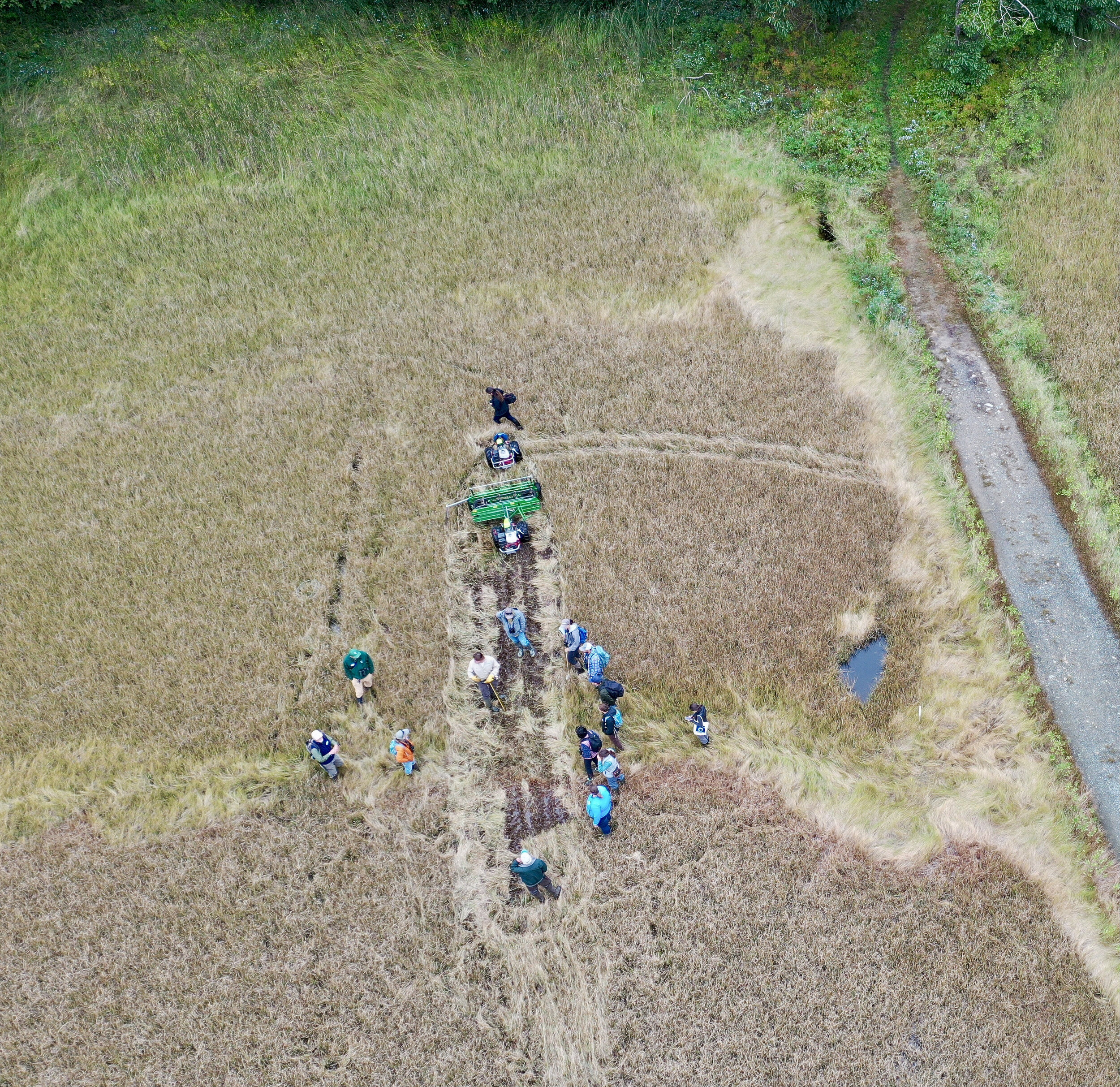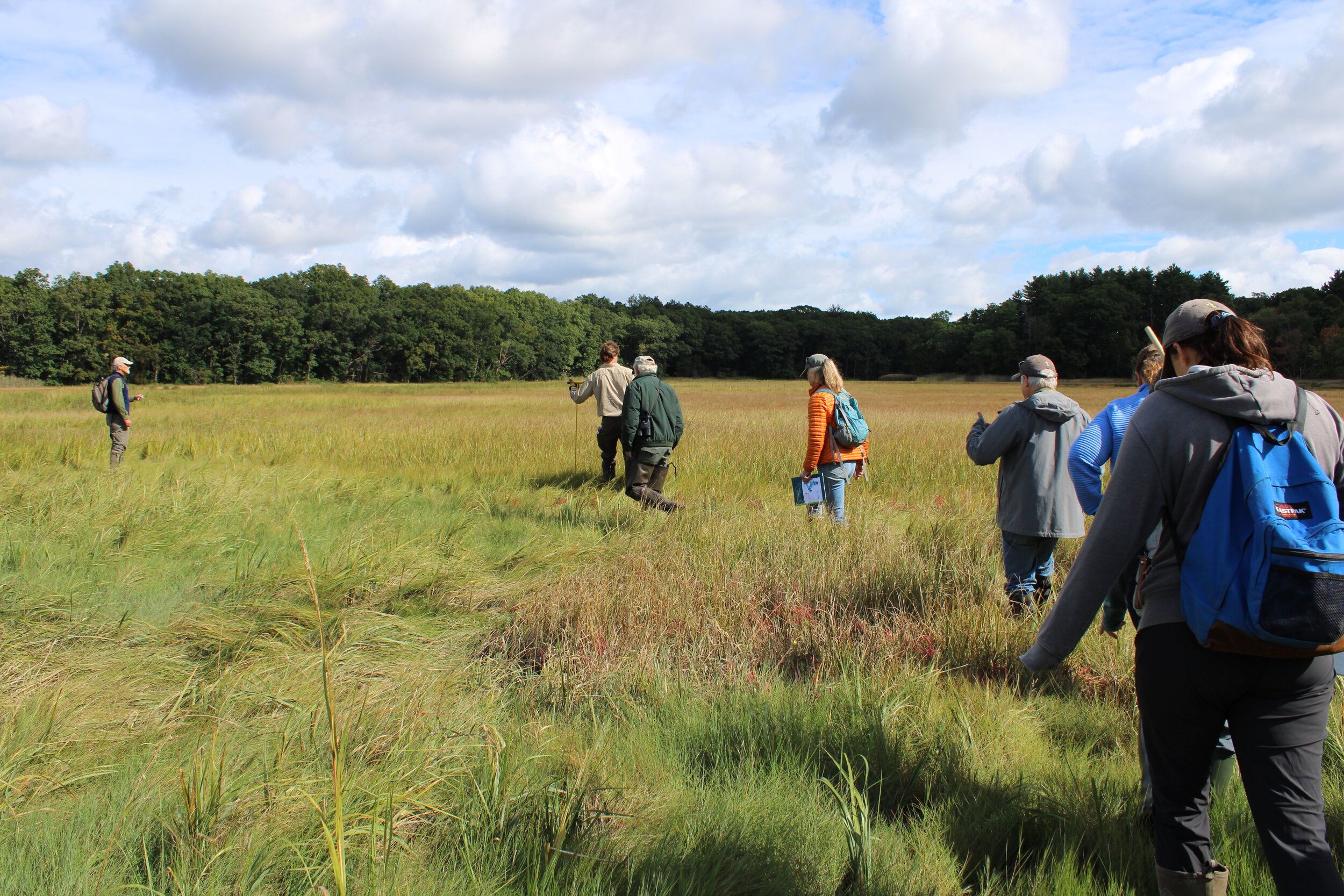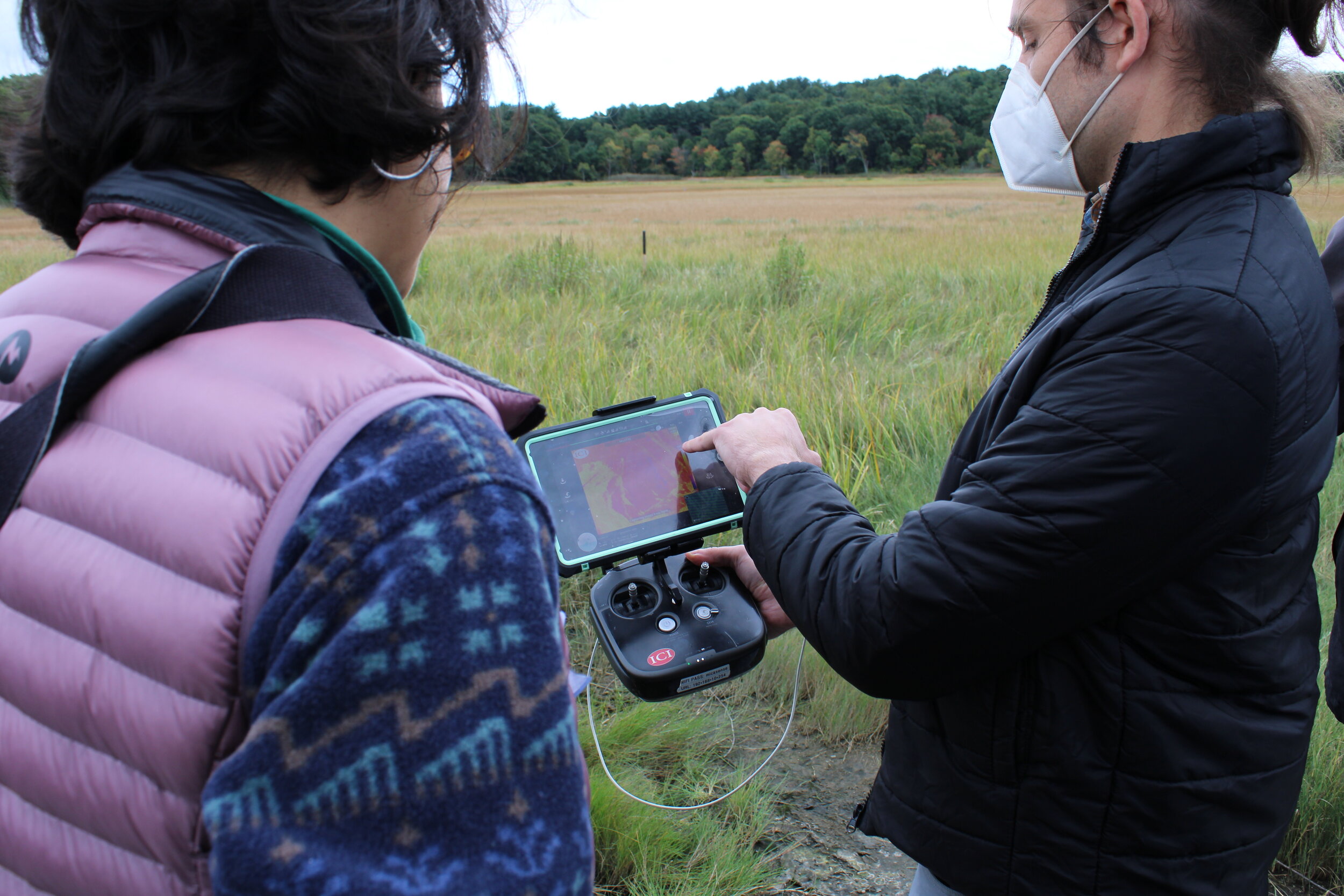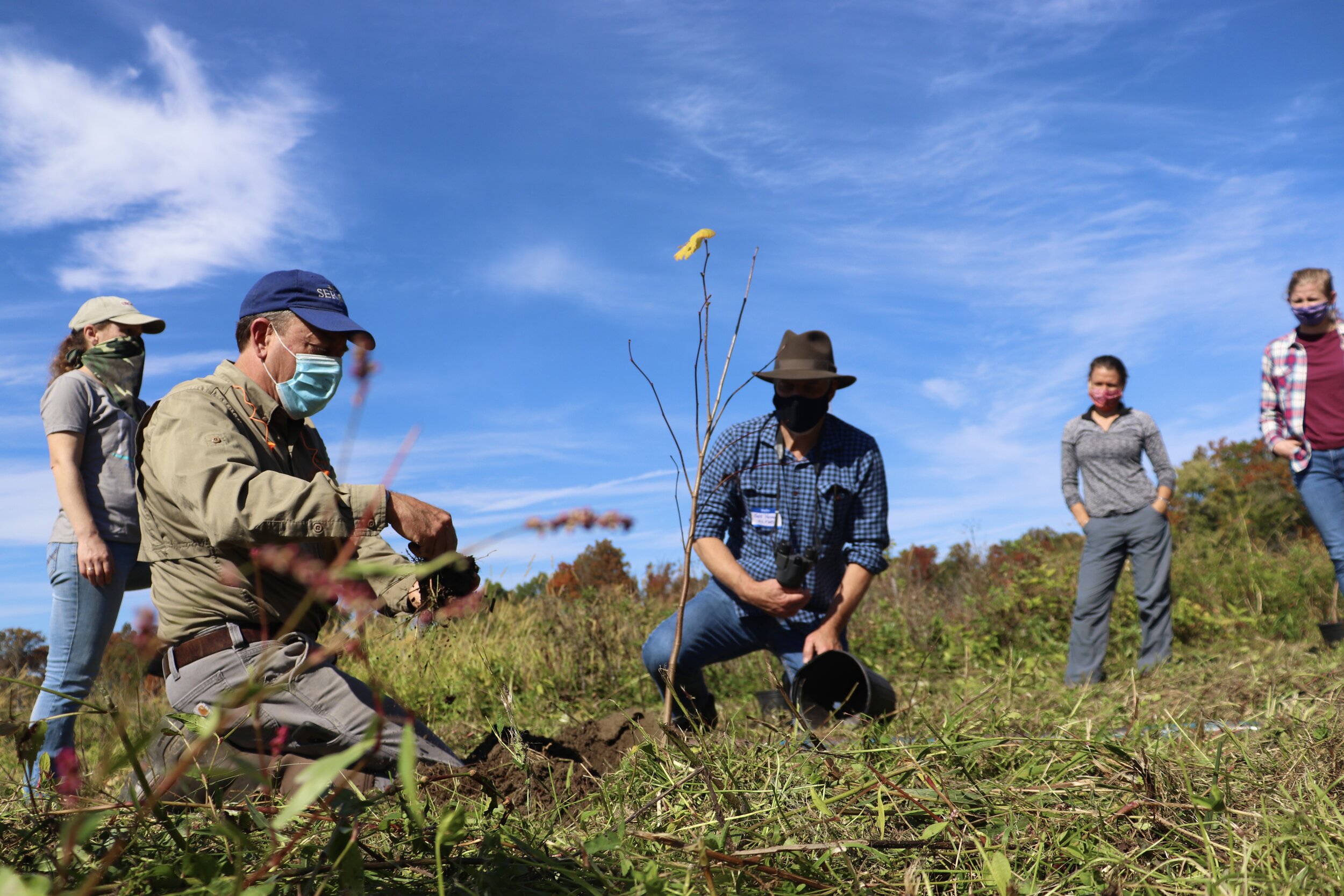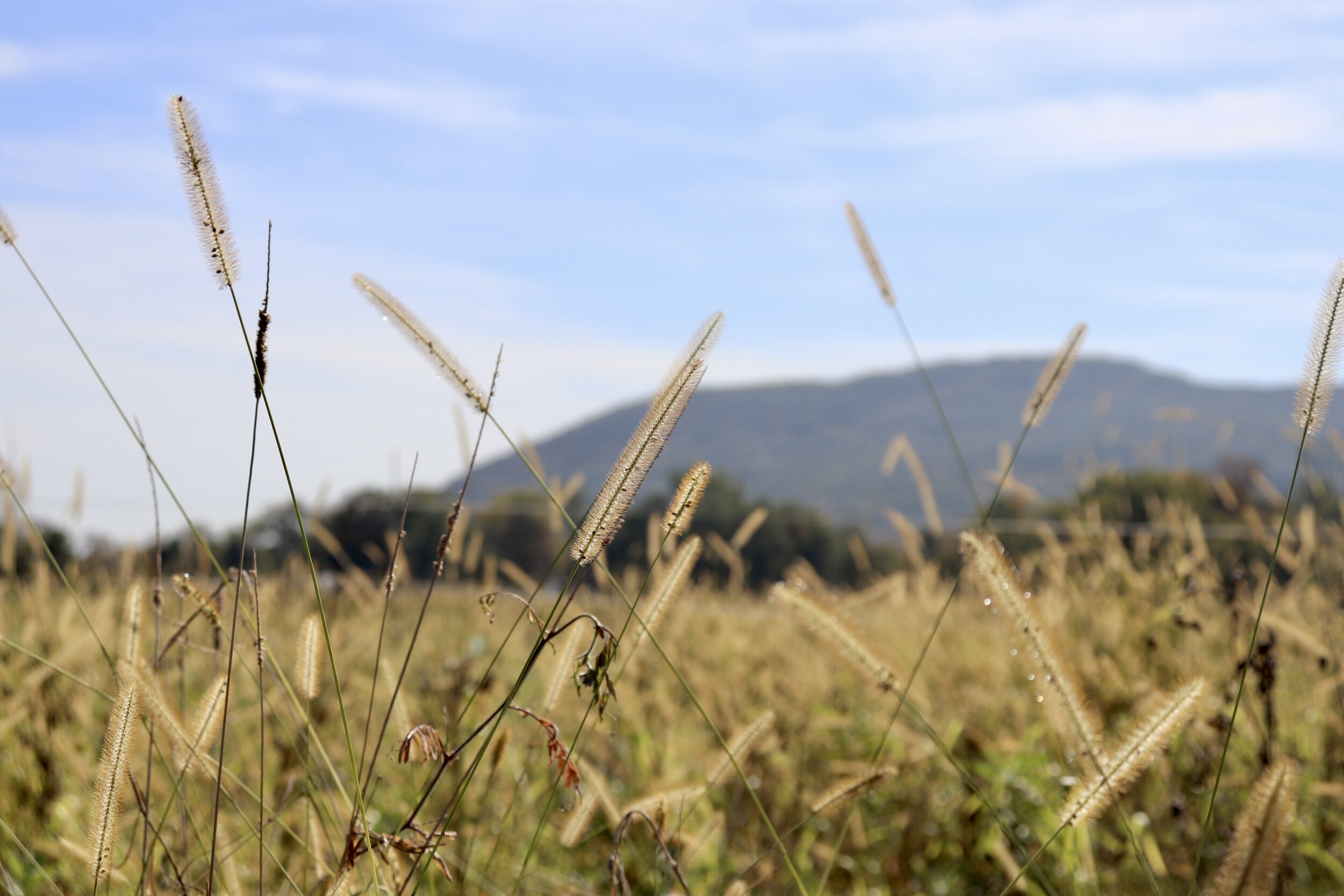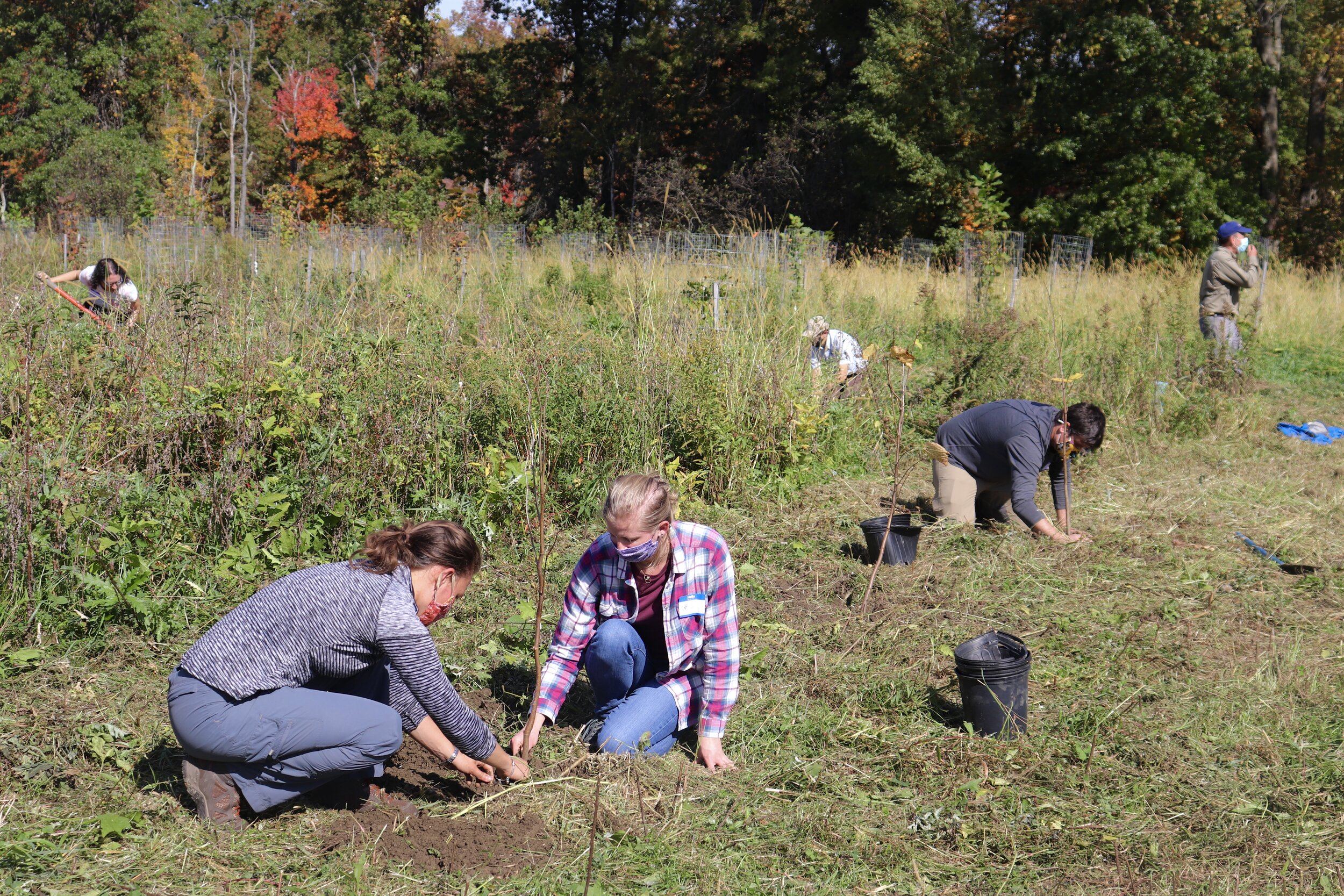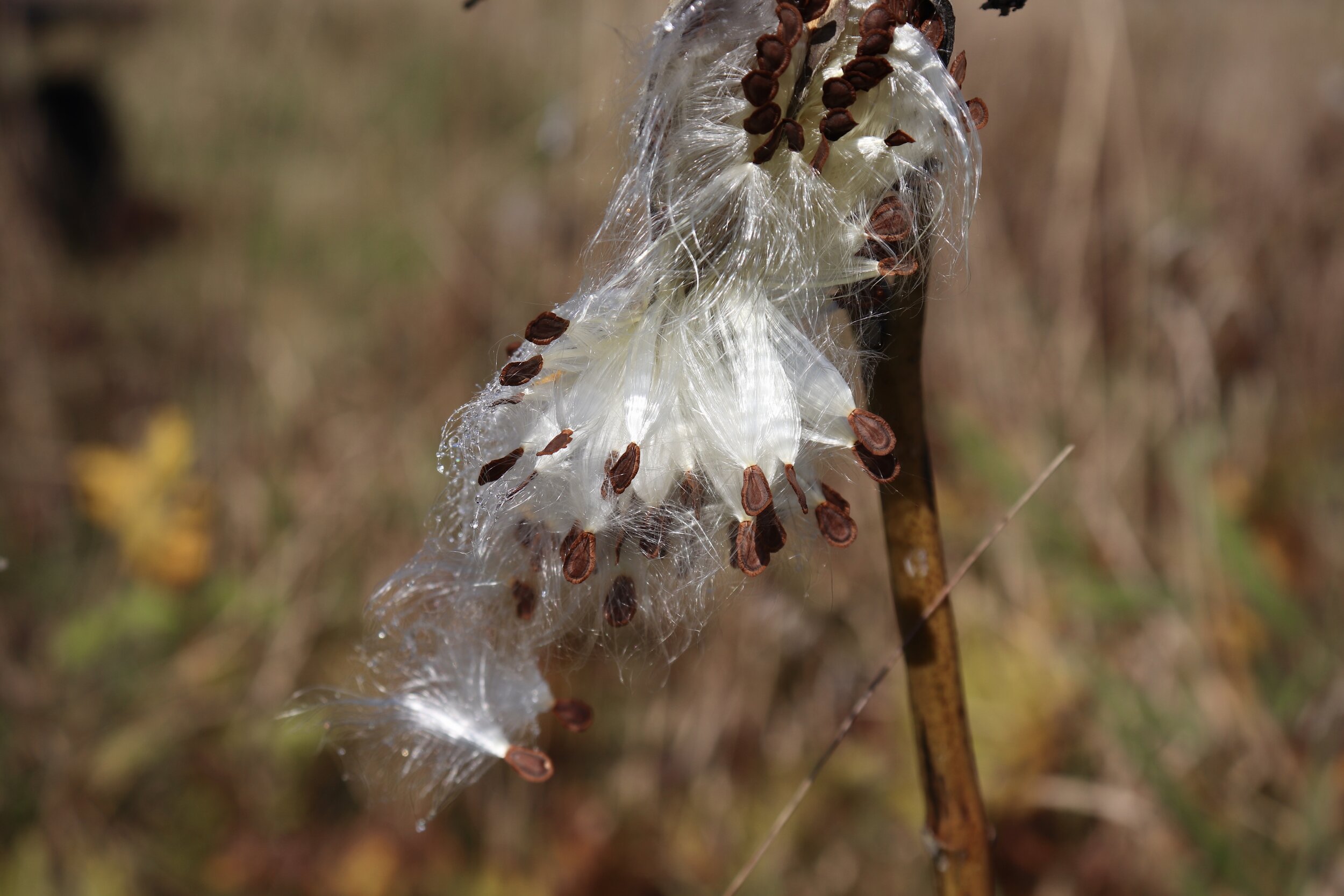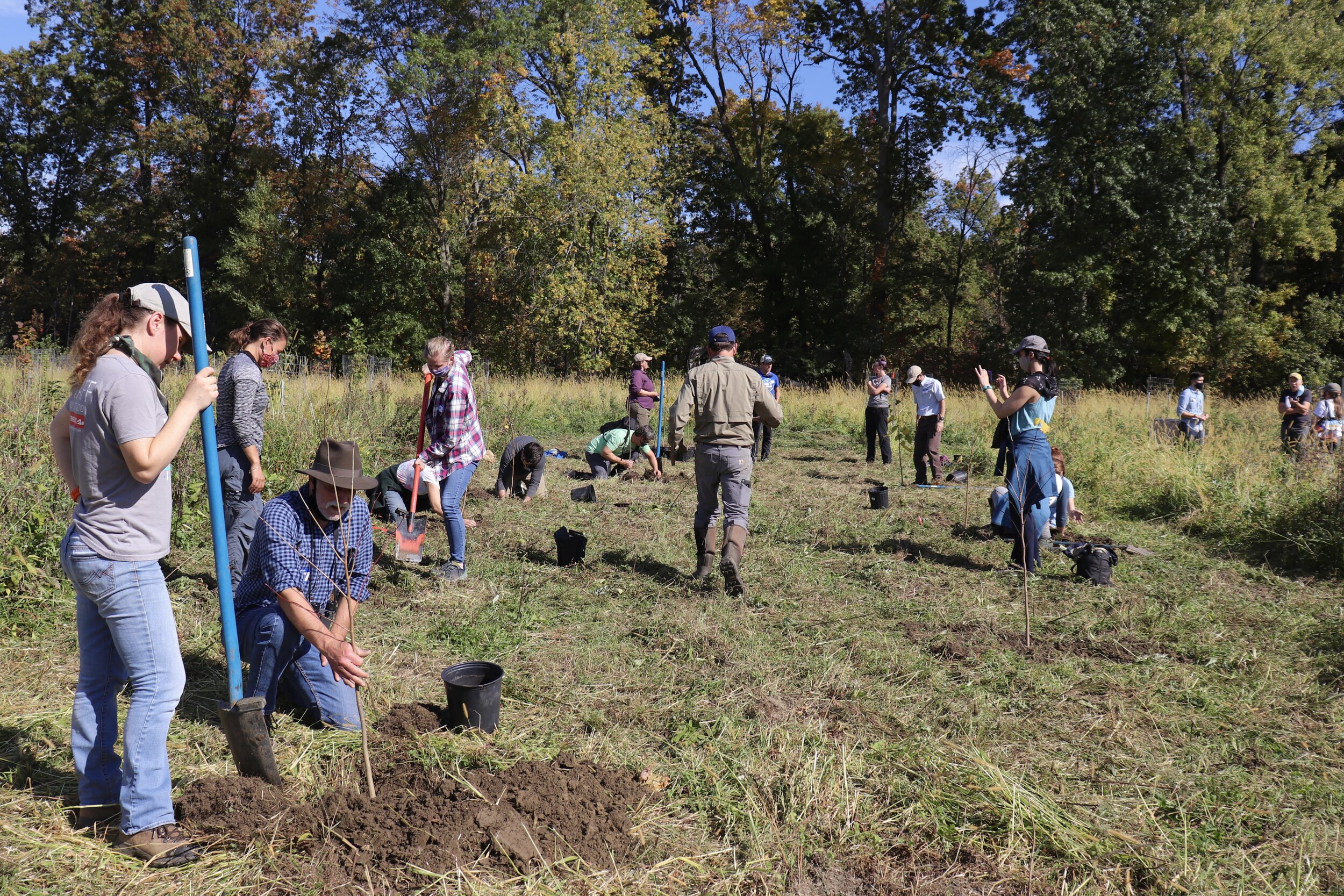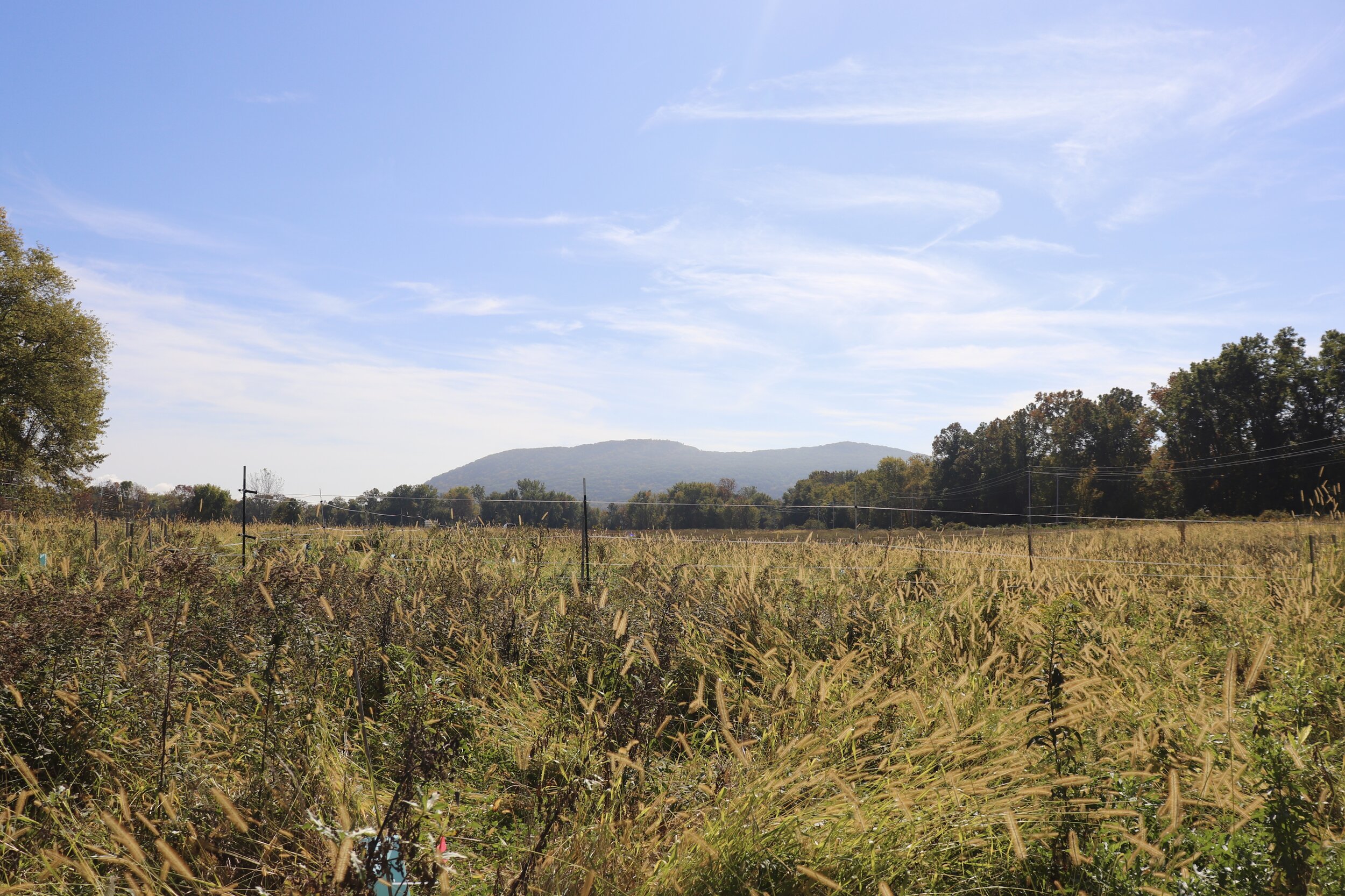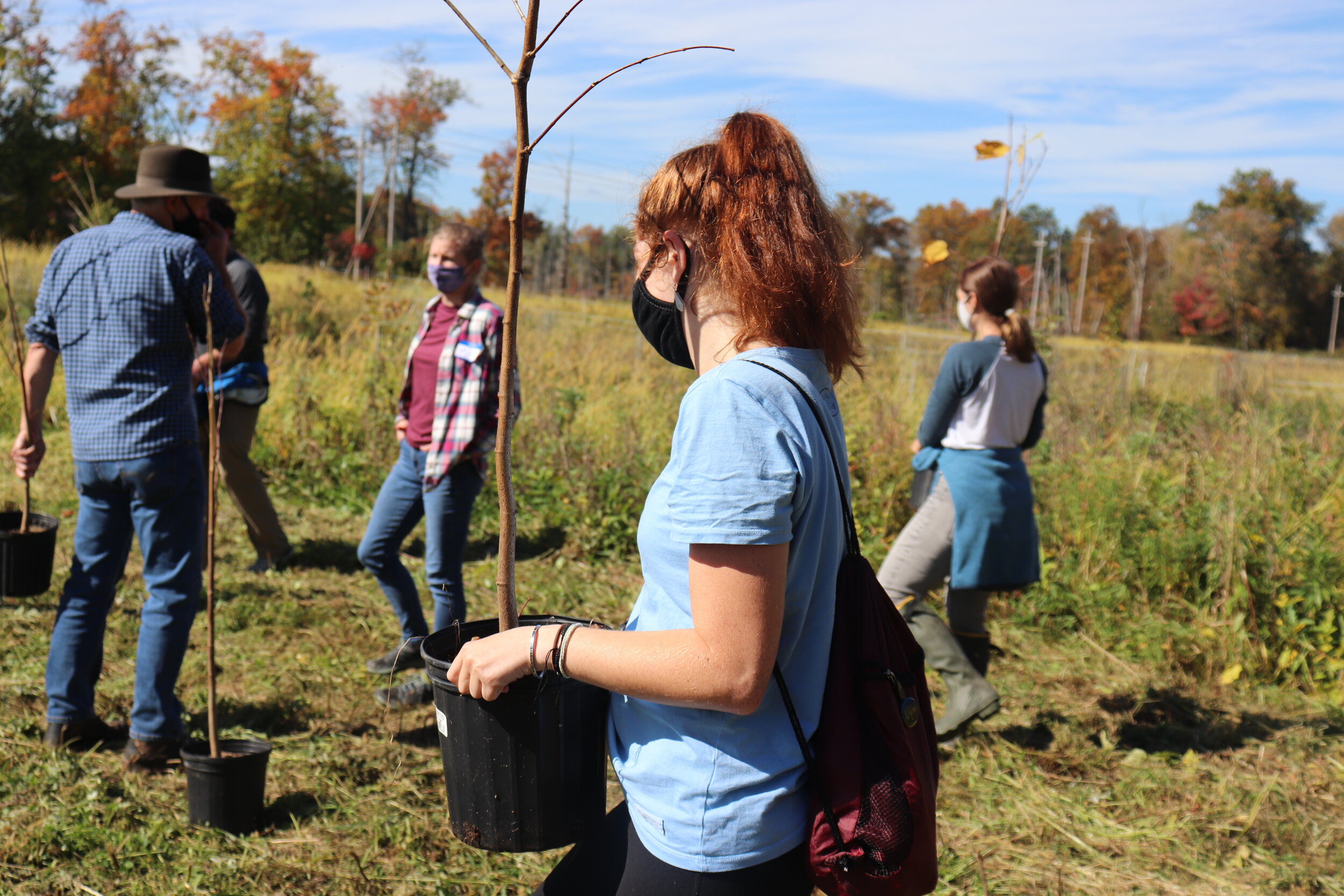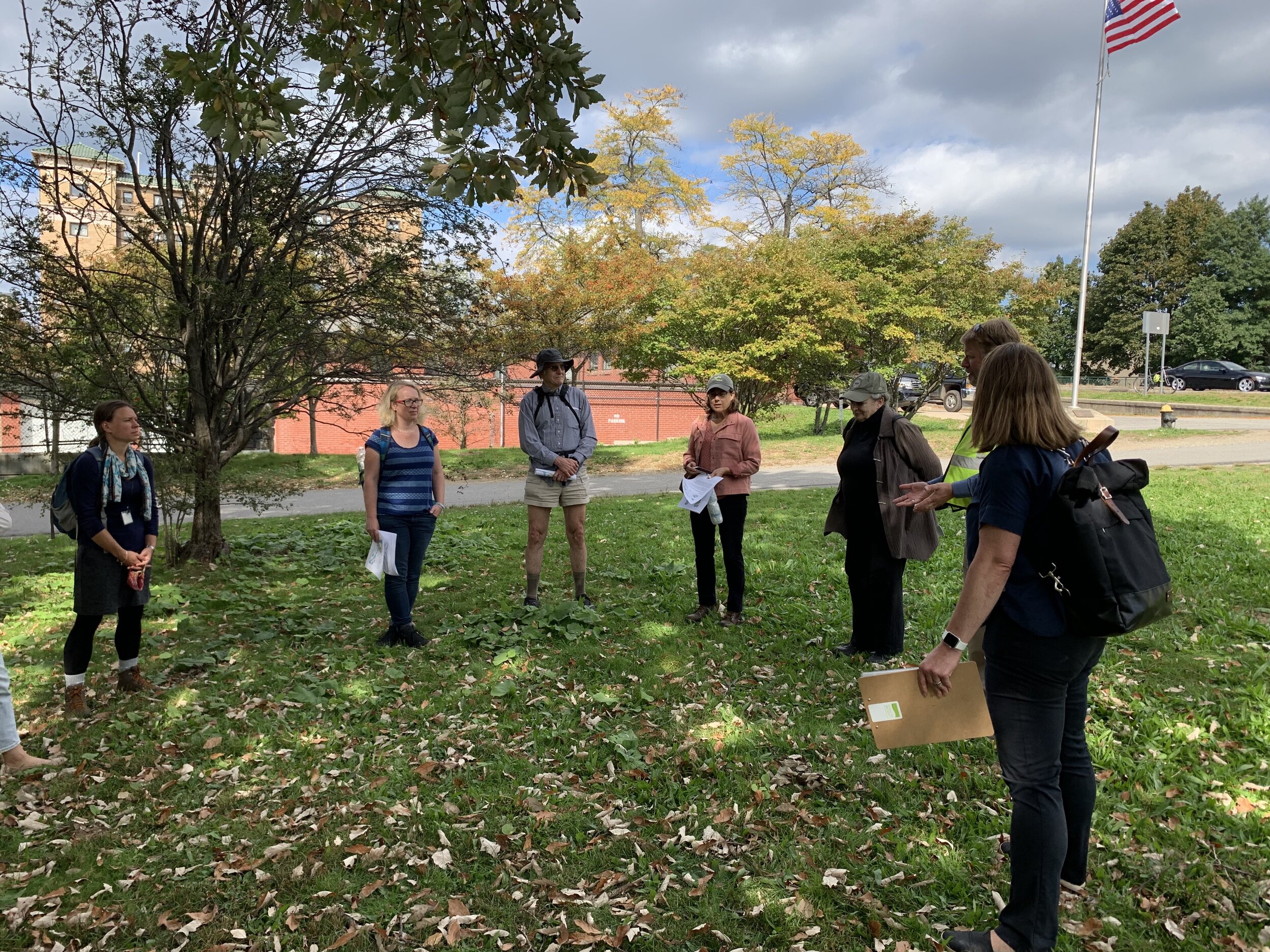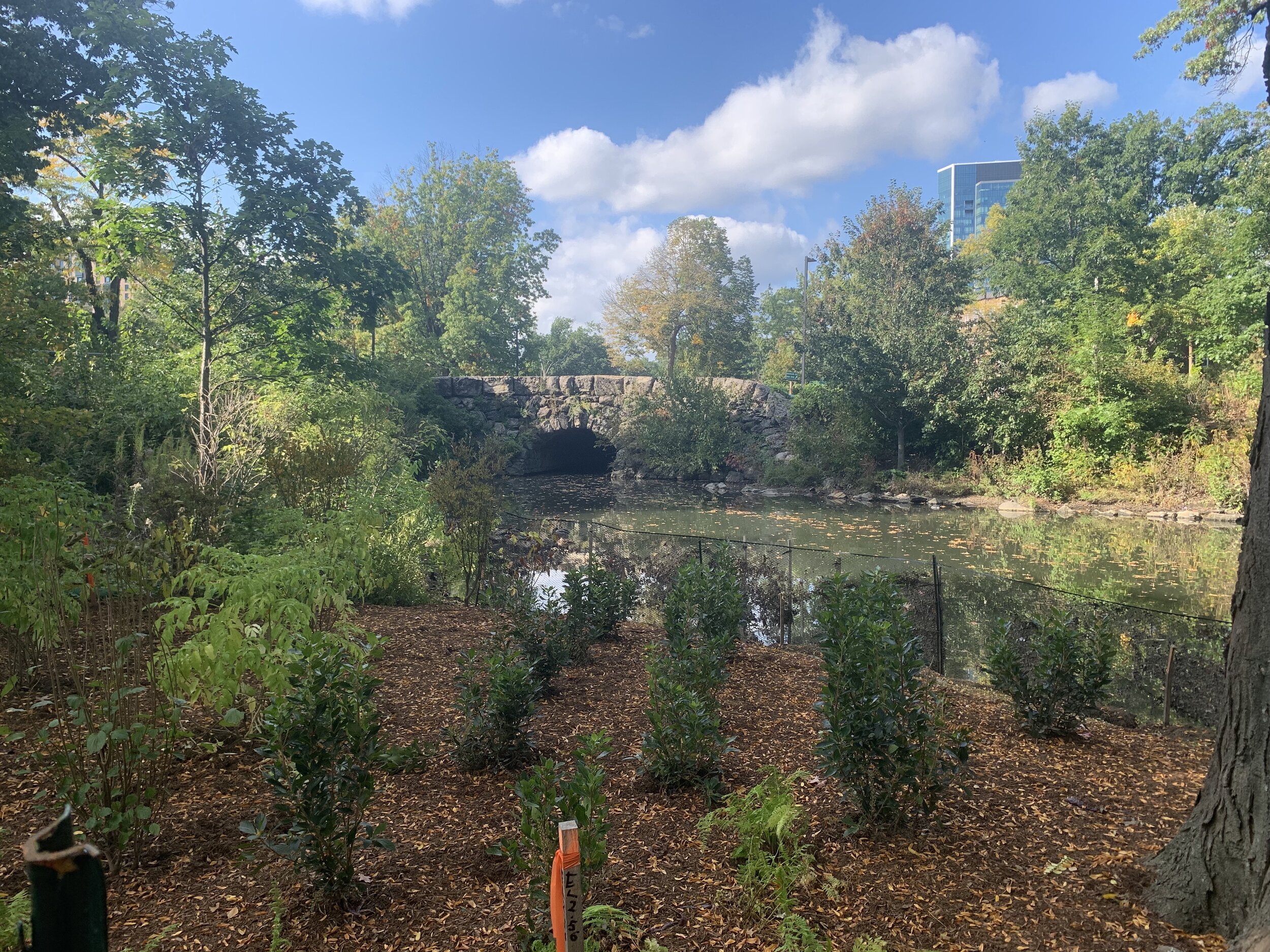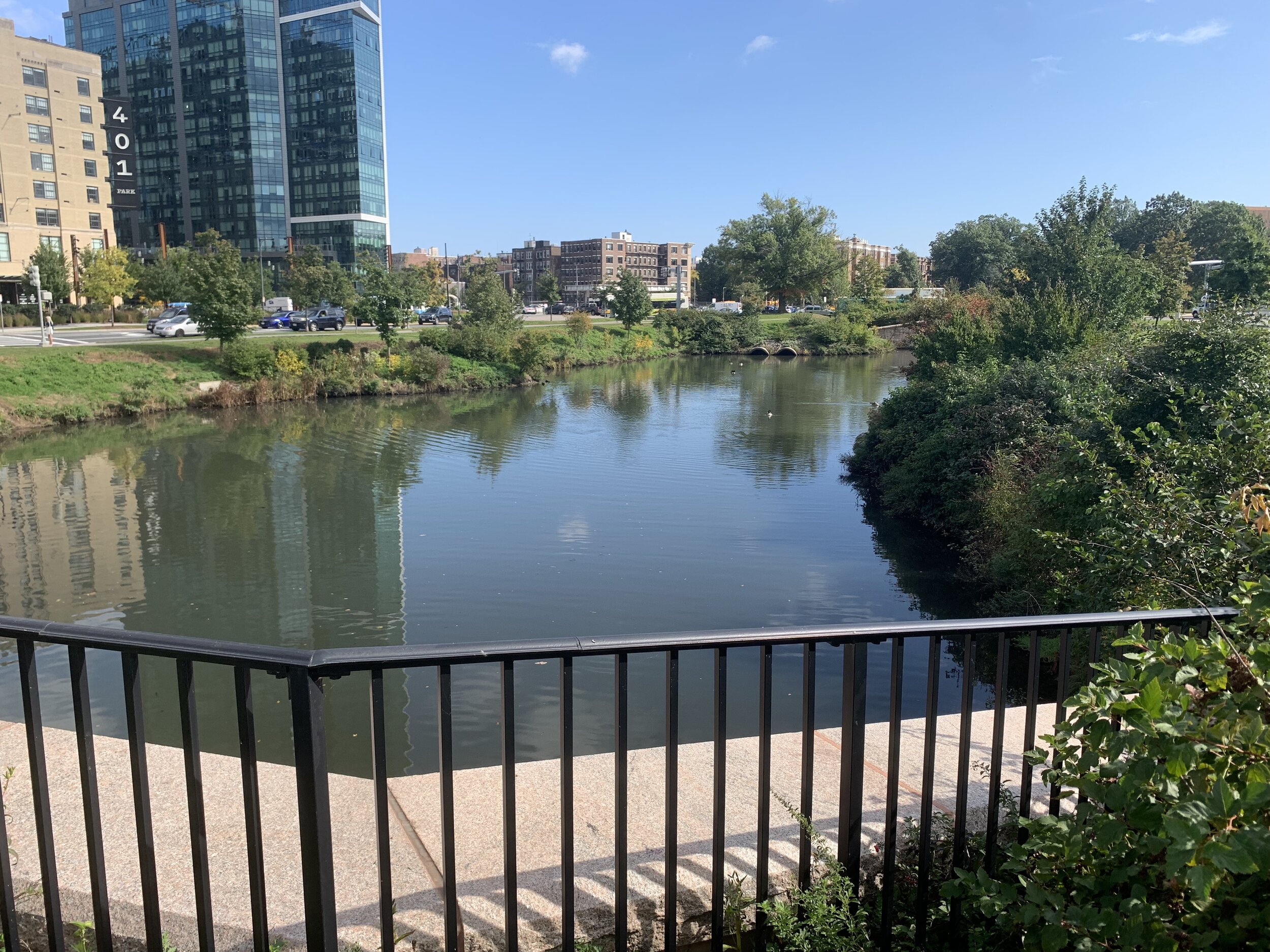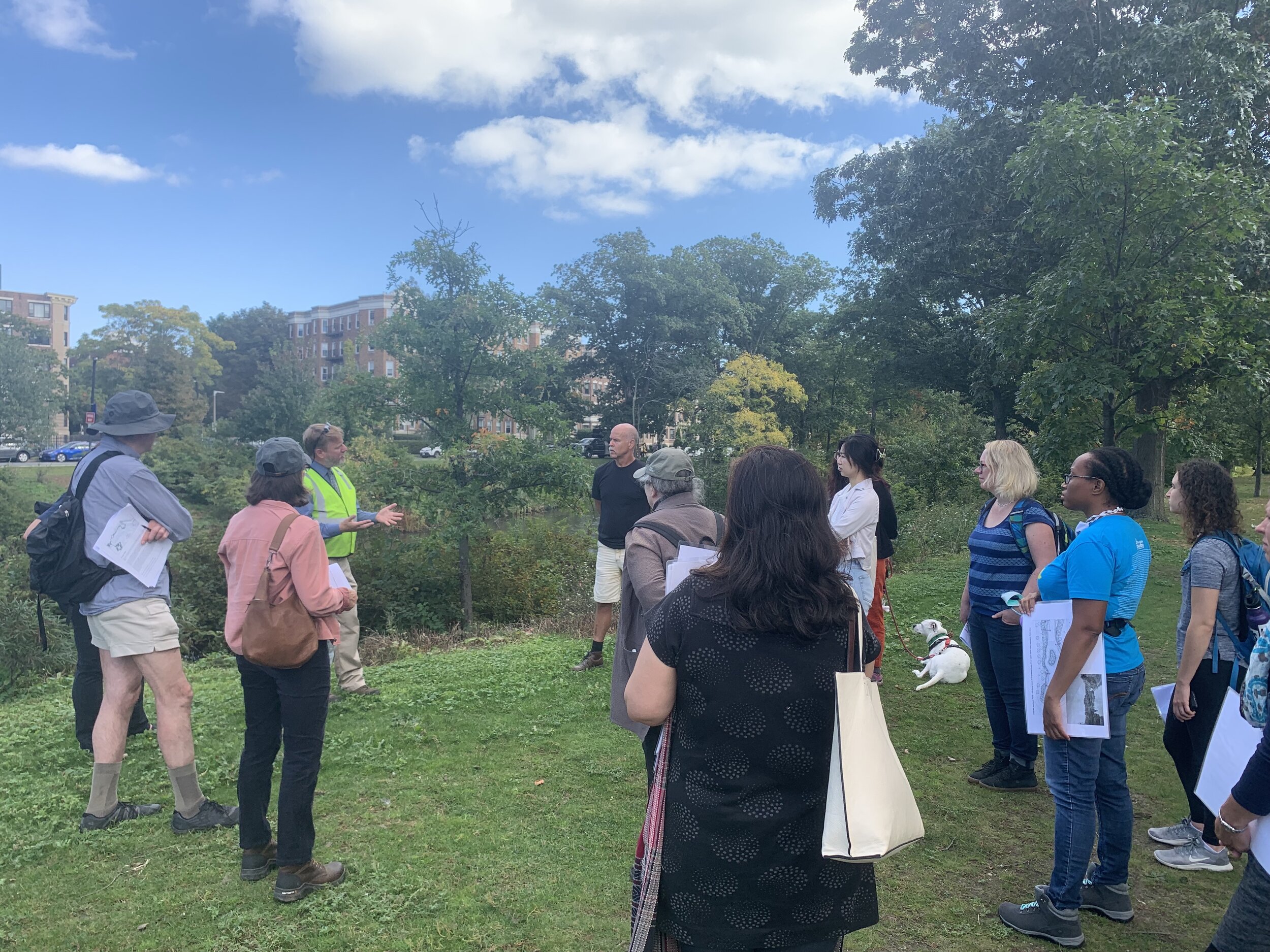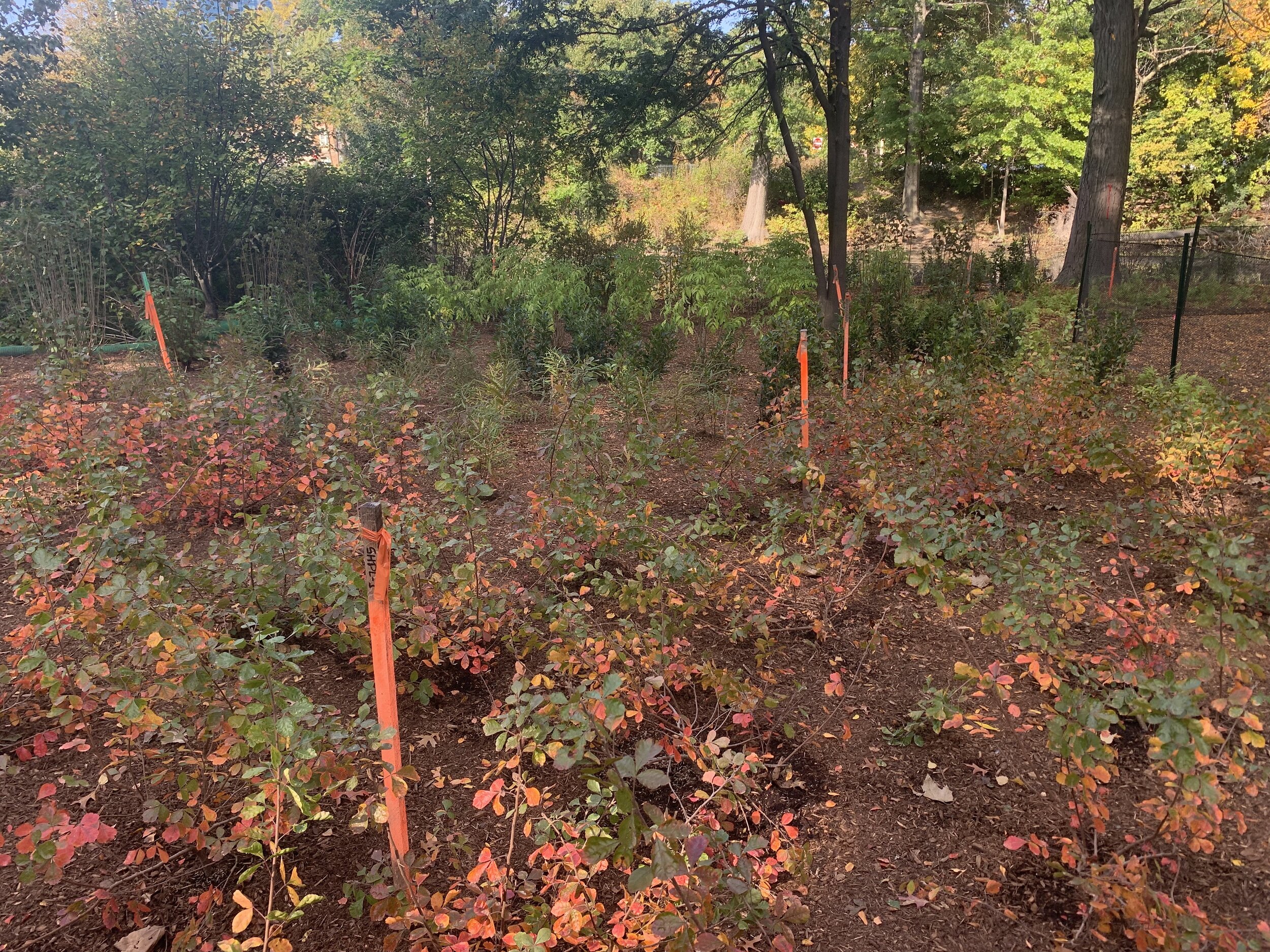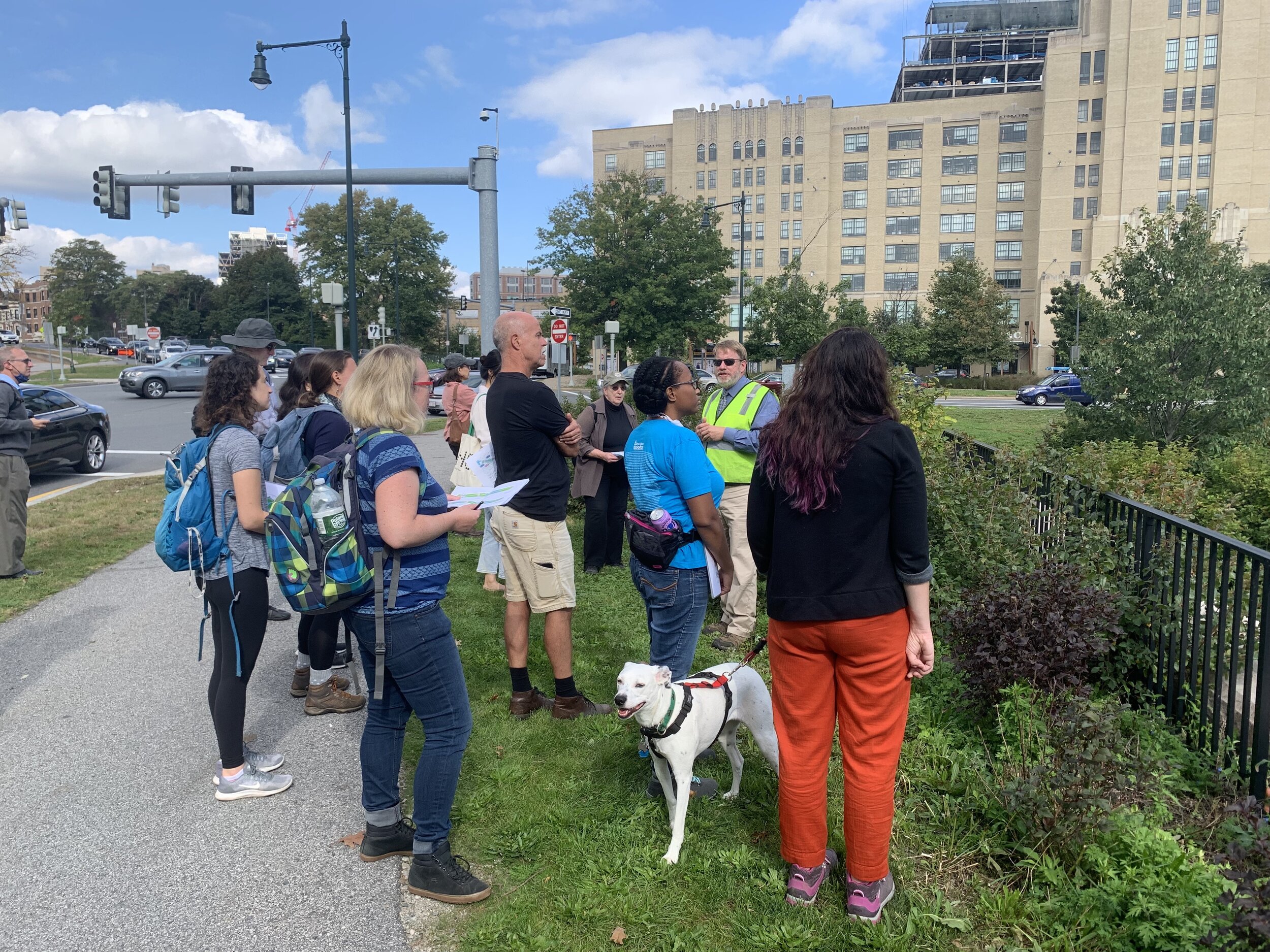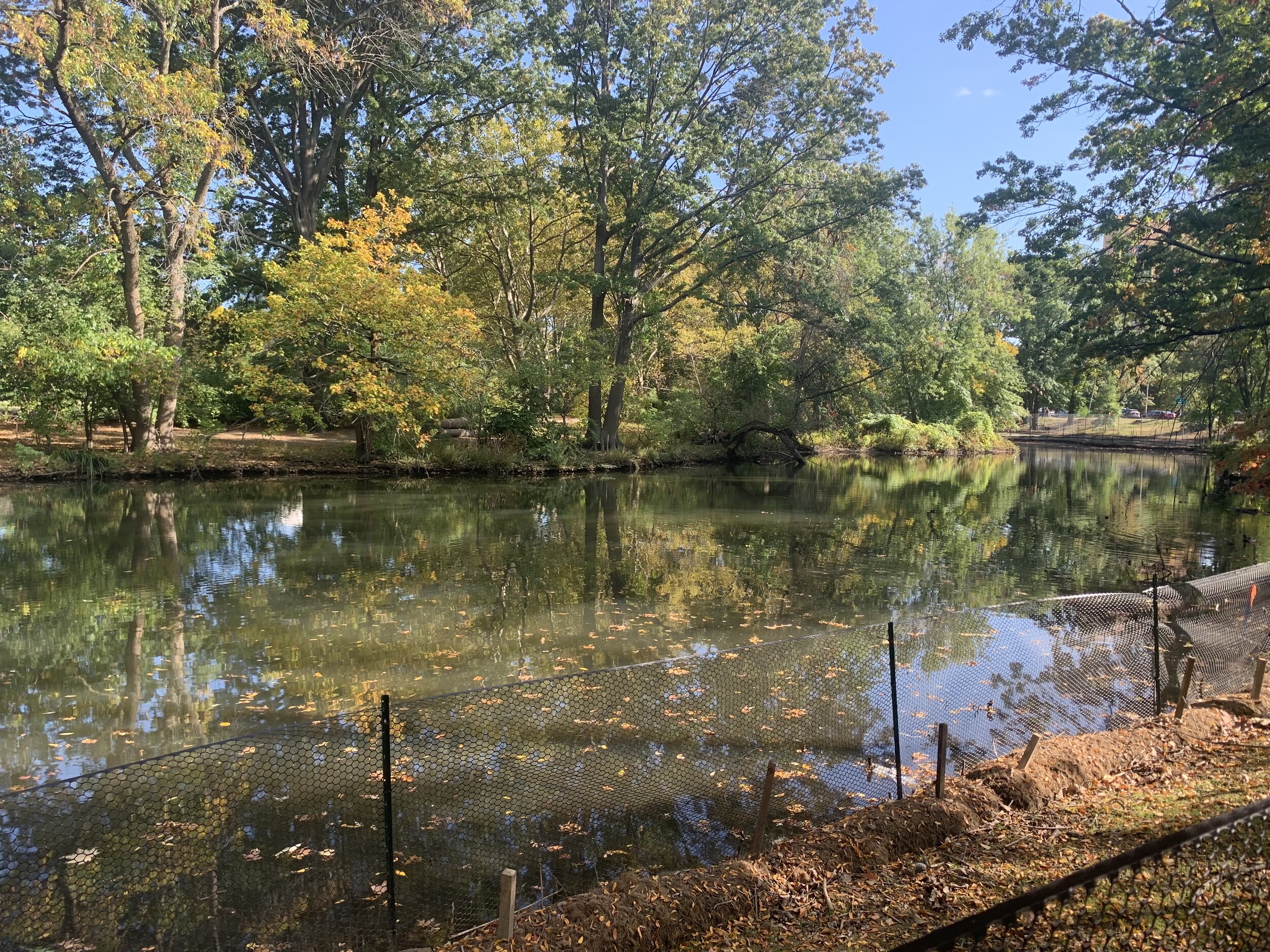Thanks to everyone who attended and supported Mass ECAN’s first-ever field trips this year! We had lots of fun getting outside, connecting with colleagues in-person, and learning about climate adaptation strategies in various ecosystems. There was a resounding amount of support for the field trips and we are excited to host more in 2022!
To learn more about our first field trip to Old Town Hill in Newbury, check out our photos below and this blog post by our co-host, The Trustees of Reservations.
Our second field trip to Arcadia Wildlife Sanctuary in Northampton focused on transformation of floodplain forests. Our co-host, Mass Audubon, has used tools about future conditions and species ranges, such as the USDA Forest Service Climate Change Tree Atlas, to select 21 climate-adapted species to be planted across the 14-acre project site. Mass Audubon selected species that were at or near the northern edge of their range, such as swamp white oak, sycamore, and tulip-tree. In choosing species to plant, staff considered incoming invasive species and vulnerable trees, including the emerald ash borer decimating green ash, a co-dominant species on the site’s existing floodplain forests. Volunteers play an essential role in providing the people power needed for these climate-informed plantings, and our field trip participants were excited to get their hands dirty (literally) planting basswood. More information about this project can be found here.
Our third and final field trip for the year was to the Muddy River Restoration Project in Brookline, with co-hosts the Boston Society of Landscape Architects and the Town of Brookline. Over the past 20 years, partners on the Muddy River project have worked to manage flooding, improve water quality, and restore Olmstead’s original design with improvements to include native species in their plantings. On the trip, we saw where a parking lot was turned back into a section of river with native plants, where several geese (and even a great blue heron!) have now made themselves a home. We were also able to get a “behind the scenes” look at phase 2 of the project, where we saw the new plantings being put in an area protected by fences. To learn more about this project and the detailed planning it entailed, visit the Muddy River Project Restoration Overview on their website.
In addition to this restoration project, the Town of Brookline recently completed their first Urban Forest Climate Resiliency Master Plan. Learn more about that here!
We look forward to seeing you at next year’s field trips!
Thanks to our 2021 Fall Series Sponsors: Division of Ecological Restoration, Fuss & O’Neill, and GZA!
Photos courtesy of Christine Boynton, Amanda Davis, Olivia Douhan, and Rebecca Schaefer.
